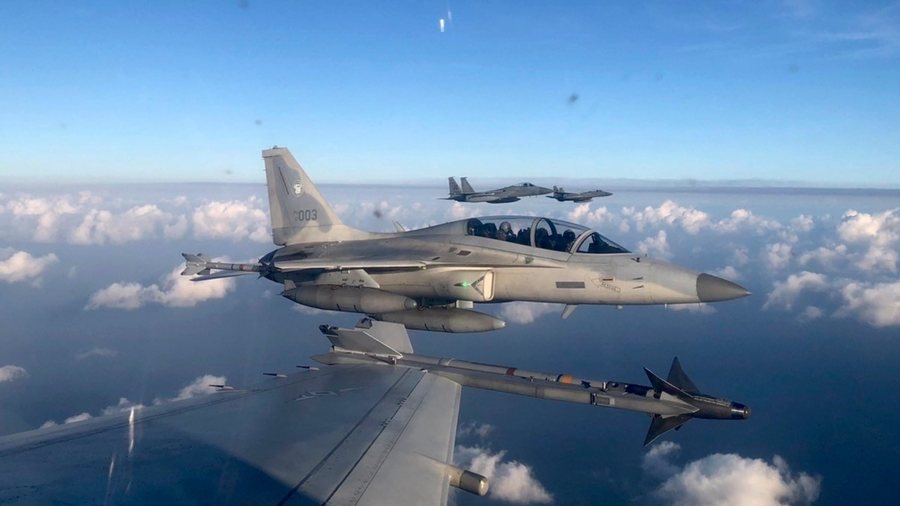
The United States and Philippine Air Forces have been conducting joint patrols over the South China Sea, angering China.
China itself even conducted a "routine patrol" over a disputed shoal.
Under President Ferdinand Marcos Jr., the Philippines and the United States have increased their security engagement, following rising tensions between the Philippines and China in the busy waterway.
The one-day exercise between the two allied countries took place in the West Philippine Sea, said Philippine Air Force spokeswoman Maria Consuelo Castillo, using Manila's term for waters in the South China Sea, which lie within its exclusive economic zone.
"The aim of the exercise was to improve operational coordination, increase airspace awareness and strengthen capabilities for the flexible use of combat power between the two air forces," Castillo said in a statement.
Castillo said three Philippine fighter jets, FA-50s, and two US B1-B bombers participated in the exercise, including a flight over Scarborough Shoal, where the Chinese air force also conducted what it called a routine patrol.
China's military accused the Philippines of joining patrols that it said were organized by foreign countries to "undermine peace and stability in the South China Sea."
Chinese air force units will "be on high alert, resolutely safeguard China's territorial sovereignty and maritime rights, and check any military activities that destabilize the South China Sea," it added.
China claims almost all of this strategic waterway as its own, despite claims from Indonesia, Malaysia, the Philippines and Vietnam. The waterway is a gateway for $3 trillion worth of annual trade.
In a press conference on Tuesday, the Philippine navy said it was "closely observing" three Chinese navy ships within Manila's territorial waters, including a missile-equipped frigate.
"The presence of the People's Liberation Army Navy reflects the People's Republic of China's complete disregard for international law and undermines peace and stability in the region," said Navy spokesman John Percie Alcos.
On Monday, state news agency Xinhua said the Chinese fleet's passage was in line with international law, citing a spokesman for the PLA's Southern Zone Command.
An international arbitration tribunal ruled in 2016 that China's claims, based on its historical maps, have no basis in international law, but Beijing does not recognize the ruling. (A2 Televizion)











